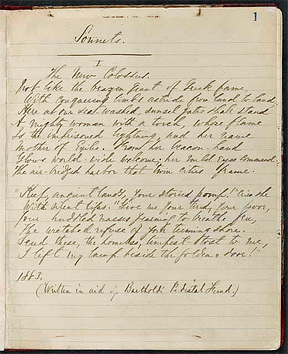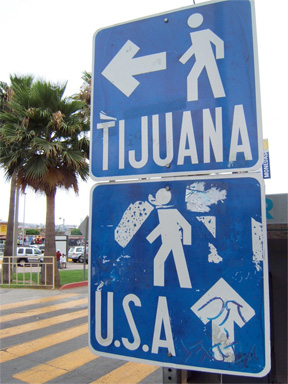In the last two days I’ve posted excerpts from the Cross Examinations conversation of illegal immigration. If you read these, and especially if you read the longer pieces from which they were taken, you’ll notice a wide diversity of viewpoints on this issue.
Today I’m going to post what I wrote for the Cross Examinations discussion. I’m calling this “My Christian Perspective on Illegal Immigration, Take 1.” This title is meant to suggest:
1. That I acknowledge other Christian perspectives and am not suggesting that mine is the only right one or even the best one.
2. That what I have written is truly a “Take 1,” or a very rough draft, if you will. This is just the beginning of my wrestling in public with the issues of illegal immigration. As someone who has lived in Southern California and South Texas for most of my adult life, I’ve certainly thought a lot about this issue. But this is my first stab at trying to say something worthwhile about it.
At any rate, here’s what I produced for Cross Examinations:
The Bible provides principles for Christians who are considering the issue of immigration (including illegal immigration, which will be the focus of my comments here). Though these principles may, in the end, lead to a “Christian position” on illegal immigration, they do not do so unanimously or simplistically. Christians who believe that the issue of illegal immigration has an easy answer — no matter what answer they prefer — are not paying attention to the diversity of the biblical witness. I will mention four basic biblical principles that pull us in different directions at once:
1. Christians are called to welcome all people into our communities of faith. This includes persons of all races, ethnicities, and nationalities. It includes undocumented workers and the business owners who employ them, lawmakers who pass laws to limit illegal immigration and those who protest such laws. The church is to be a place of refuge for all sinners, a place of welcome for all people.
2. The United States of America is neither a church nor a Christian nation in the sense that it is to fulfill the calling of the church of Jesus Christ. The values, priorities, and activities of the country may rightly differ from those of the church and the individual Christian. If someone steals my car, as a Christian, I am called to forgive that person. The government’s job is not to forgive, but rather to arrest, prosecute, and incarcerate that person.
3. Christians are instructed in Scripture to honor government authority and to support even its use of “the sword” in the exercise of its governing responsibility. Yes, there are times when Christian loyalty to God trumps loyalty to Caesar. But, in general, Christians are to be subject to governing authorities as we obey and uphold the laws of the nation (e.g., Rom. 13:1-7).
4. God’s people, including Christians, are to be committed to justice, especially for those who are powerless in society, including “aliens” (Ex. 22:21-24; Lev. 19:33-34). The call of God to do justice is not limited by national borders. Christians must be profoundly committed not only to our own personal flourishing and that of our fellow citizens, but also to the well-being of our neighbors in other countries. Christians can never be satisfied with economic prosperity in the United States when so many of our neighbors to the south are caught in poverty.
 If these four principles apply, then no Christian answer to the illegal immigration problem in the United States will be an easy or simplistic one. We need a serious, biblically-informed, mutually-respectful conversation among Christians of varying viewpoints as we seek to determine God’s guidance for our churches and our nation. (Photo: The manuscript version of Emma Lazarus’ sonnet, “The New Colossus,” which is mounted on the Statue of Liberty.)
If these four principles apply, then no Christian answer to the illegal immigration problem in the United States will be an easy or simplistic one. We need a serious, biblically-informed, mutually-respectful conversation among Christians of varying viewpoints as we seek to determine God’s guidance for our churches and our nation. (Photo: The manuscript version of Emma Lazarus’ sonnet, “The New Colossus,” which is mounted on the Statue of Liberty.)
I know from experience that the vast majority of those who come to the United States illegally do so because they were trapped in poverty and injustice in their native countries and had no hope of improving their lives for themselves and their children. Christians throughout the Americas should be working in diverse ways to help those south of the U.S. border to have the opportunity to escape from poverty and oppression in their own homelands, even as our nation finds wise ways, in the words of Emma Lazarus in “The New Colossus,” to welcome into our country “your tired, your poor, your huddled masses yearning to breathe free, the wretched refuse of your teeming shore.”
So, there you have it. Take 1. I’ll be interested in your comments and expect that I shall learn from them.

